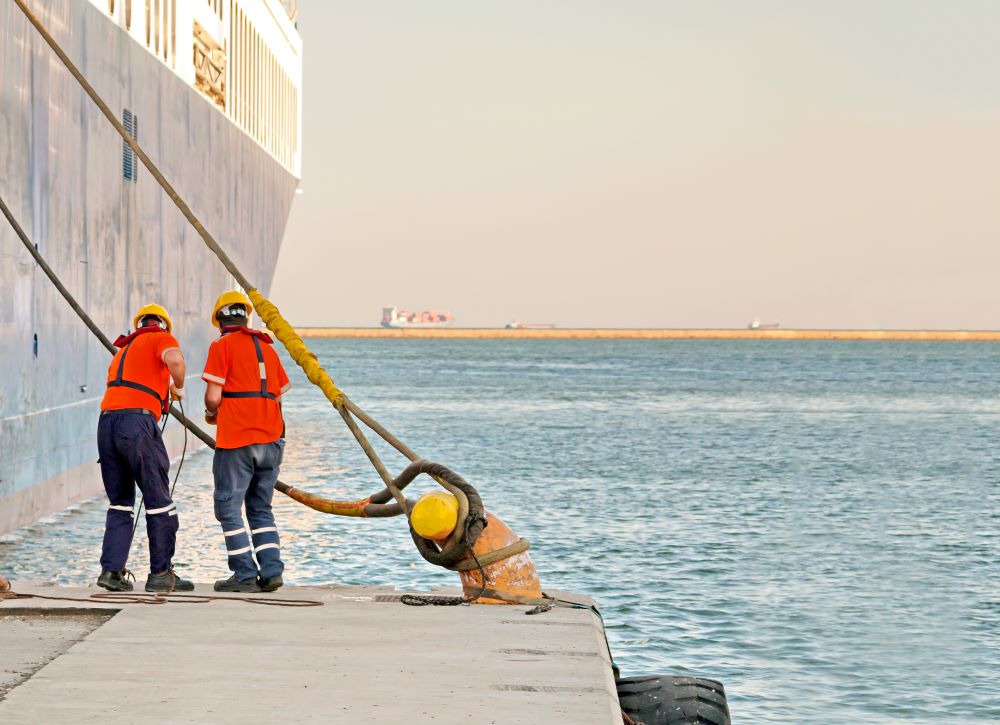
The maritime industry represents the veins through which international trade flows, making ocean-bound shipping one of the most important sectors for exporters and importers to keep informed about.
The IOE&IT Daily Update here brings you five of the most important shipping stories you may have missed last week.
1. Maersk’s warning
Danish maritime giant Maersk is predicting that global container demand will contract by 2-4% this year, as the global economy teeters on the edge of a long, protracted downturn.
Maersk CEO Soren Skou accompanied news of increased profits for the company with warnings of “dark clouds” on the horizon.
“We see a recession looming . . . On the one hand, we have never delivered such a great result financially, but every indicator we are looking at is flashing dark red,” he said.
The FT reports that freight rates have started to normalise and pandemic supply chain bottlenecks were easing.
Skou added that new contracts will be on lower terms going forward with costs coming down as international port congestion recedes, reports Sky.
2. Container costs
The news comes as the latest Drewry composite World Container Index – a key benchmark of shipping costs – showed that container prices between Asia and the US have dropped dramatically.
Forty-foot container spot prices were 68% lower than at the start of 2022, with prices having fallen for 35 weeks in a row.
According to Reuters, port congestions and container shortages are beginning to be less of a problem, partly due waning demand as retailers cut orders and wind down inventories.
3.China manufacturing dips
The move by Europe to diversify supply chains, combined with Beijing’s adherence to its zero-Covid policy, has seen China’s manufacturing sector shrink for the third month in a row, as logistics disruption continued to bite.
The Loadstar reports the Caixin China General Manufacturing Purchasing Managers’ Index at 49.2 for October. Any number below 50 indicates a contraction in activity.
China’s strict virus-control rules continue to test the patience of manufacturers in China and their foreign partners, according to Lloyd’s List.
4. Russian oil insurance ban
The UK government has acted to ban the provision of insurance for ships carrying Russian oil, cutting off access to British indemnity markets.
As part of the G7’s attempts to impose a price cap on Russian oil exports, the ban will be waived only for countries that sign up to a government scheme, reports the FT.
Western governments are attempting to limit Moscow’s oil revenues but want to keep Russian oil flowing to prevent a drop in supply.
The British government said the legislation, which will take effect from December 5, would “prevent countries from using the UK’s services to transport Russian oil unless it is purchased at or below the oil price cap set by the . . . G7 and Australia”.
5. Liverpool docks latest
Meanwhile, in the UK, Liverpool dockers are set to walk out for the fourth time from 14-21 November after the latest pay talks with Peel Ports failed, reports the Loadstar.
Director of Liverpool Container T1 and T2 Richard Mitchell said: “Our latest and final offer represents an average increase of 11% – significantly higher than any other UK port. We asked Unite to agree to a joint meeting with [independent arbitrator] ACAS in an attempt to resolve the strikes, but they continue to refuse engagement.”
However, Liverpool Business News reports that a breakthrough could be at hand.
According to the website, Peel Ports has agreed a settlement with at least one group of workers and that a resolution with the rest could be reached soon.



